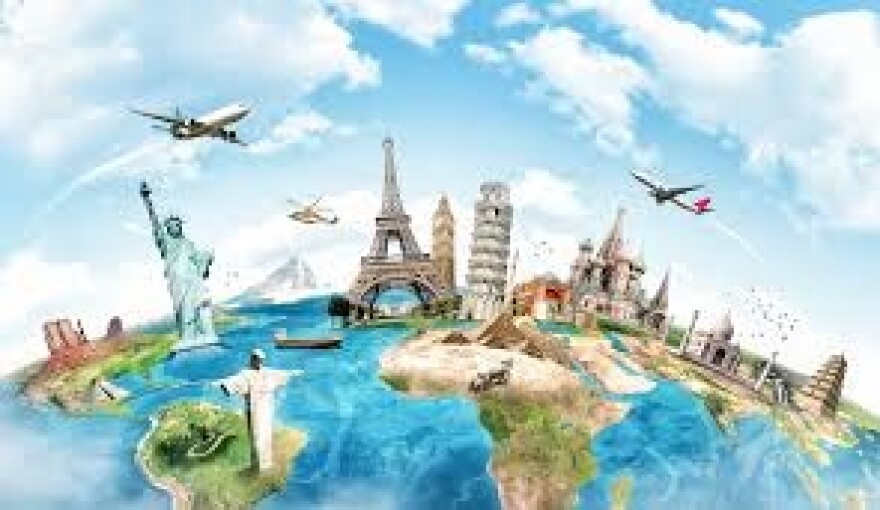The famous travelers of the past like Lord Byron, Robert Louis Stevenson, and Gertrude Bell were essentially solitary. That’s how I started out in my teens, puttering around Europe on a motorcycle – alone not because of my noble independent spirit but because nobody would ride on the back. Now we travel in crowds, sometimes crowds of two or three thousand when a big cruise ships comes in. There’s no “escape,” whatever the Sunday Supplements tell you, and precious little wonder or magic in that kind of travel.
Tourism, almost everyone agrees, has become a kind of plague. It’s not that there’s anything wrong with the desire to explore new worlds and new civilizations. It’s just that everybody wants to go to the same places at the same time. These approved “sights” may not be the most interesting places to see, but they are always the most crowded. We are all travelers now, but only in the sense that UPS truck drivers are travelers – we cover a lot of miles and make a lot of stops. But the miles become increasingly repetitive and the stops increasingly predictable until the awful realization dawns that we are in danger of getting bored. The tour companies invent more extreme and exotic destinations every season, but it’s a small planet. We may be running out of things to add to the bucket list.
My own bucket list, if I ever had one, is almost empty. It seems to shrink naturally as one grows older, and perhaps an empty bucket list is one of the gifts that comes with age – no more nightmarish airports, no more excruciating tours in the blazing sun, no more penitential hotel beds, no more picturesque ethnic restaurants that send you straight to the hospital. Now I’m inclined to let young people do it. That’s what young people are for: to go to war, or to go to Florence – experiences that are not totally dissimilar.
I am no longer intimidated by popular guide books with titles like A Thousand Places to See Before You Die. At the most generous estimate, I have seen no more than two hundred and eight of the essential thousand, and I have been to dozens of places not on the “must see” list and have therefore wasted my limited time. If I were to take these guides seriously I would have seven hundred and ninety-two indispensable places still to visit. The Great Colonnade at Palmyra in Syria was conveniently destroyed by ISIS, but that still leaves the Borobudur monument in Java, and the Tsukiji Fish Market in Tokyo, and seven hundred and eighty-nine more. This would mean, by my calculation, about eighty trips a year, or almost two a week, and I’m just not going to do it.
I am confirmed in this resolution by a dream I once had in which the world supply of oil ran out suddenly without warning. The planes stopped, the big cruise ships stopped, the cars and coaches stopped, and everybody was forced to stop wherever they happened to be at the time, like a global game of musical chairs. Think about it. Yes, you could be marooned forever on Paradise Island. But you could also spend the rest of your life in the Tokyo fish market. I can’t face that kind of existential uncertainty. My bucket list is closed.
Copyright: David Bouchier


